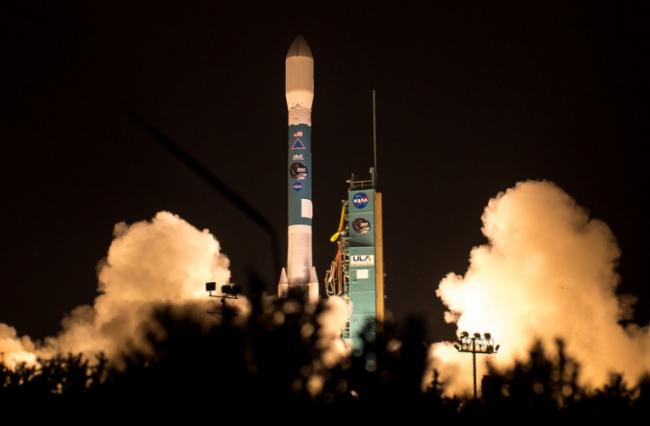
Space science ‘superpowers’ can light the way to success for girls in ‘STEM’ fields, hears UN forum
New York, June 20 (IBNS): On its opening day, a major United Nations forum on the peaceful uses of outer space, was issued a clear challenge to break through the so-called “glass ceiling” that prevents women and girls from achieving their full potential; especially in the field of science, technology, engineering and mathematics.
It was important to foster an understanding that “space for women” would be among the priorities moving forward, Markus Woltran, from the UN Office of Outer Space Affairs (UNOOSA) told UN News. He was the moderator of a panel discussion on space for women, taking place on Monday.
He explained that three steps could be taken to reach that goal, including getting more girls and women interested in STEM fields – science, technology, engineering and mathematics - secondly, using space as a motivating factor to create that interest; and third, keep their interest and involvement in STEM high, by removing the glass-ceiling that blocks their pathway to success.
Astrophysicist Ersilia Vaudo, the Chief Diversity Officer at the European Space Agency and a panel participant, also reiterated the importance of the “element of wonder and excitement” to light up career paths in space science.
“I used to say particularly for girls, but it holds true for everyone, that space and science gives superpowers,” she told UN News, highlighting that STEM offers dimensions that people will not experience otherwise.
The field of space, in particular, is important for innovation, she added, noting rich and fulfilling career paths, ranging from climate action, to space exploration and now, living for long periods of time beyond earth’s orbit.
Citing the example of the European Space Agency, which has 22 member countries, speaking 18 different languages, she continued: “We have been able to do things together that were not possible to do alone, like landing a robot on a comet, 500 million kilometers away from Earth.” “These challenges will need the talents of all,” said Ms. Vaudo, adding that workforces must be inclusive, in addition to being diverse, in order to realize everyone’s full potential.
“This is because we have been able to put all these talents and competencies together and make wonderful things happen.”
Space and Industries
Also on Monday, key actors from the space industry deliberated on how the industry can contribute to the 2030 Agenda for Sustainable Development.
Panel moderator, Jorge Del Rio Vera, Scientific Affairs Officer at UNOOSA, told UN News that the space industry is eager to engage with the ambitious Sustainable Development Goals, and recognizes the huge potential of being involved.
Partnership with a wide range of stakeholders, can also serve as an important driver for the implementation of the Sustainable Development Goals (SDGs), as noted in Goal 17, “Partnership for the Goals.”
The challenge with the space industry, however, Mr. Del Rio Vera added, is that actors do not know “how” to go about forging such partnerships.
“This was a good opportunity for them to present their work, and what they can do for the 2030 Agenda and how to get involved,” he said, noting that UNOOSA has developed guidelines on how the space industry can collaborate with the UN on sustainable development.
NASA
Support Our Journalism
We cannot do without you.. your contribution supports unbiased journalism
IBNS is not driven by any ism- not wokeism, not racism, not skewed secularism, not hyper right-wing or left liberal ideals, nor by any hardline religious beliefs or hyper nationalism. We want to serve you good old objective news, as they are. We do not judge or preach. We let people decide for themselves. We only try to present factual and well-sourced news.







